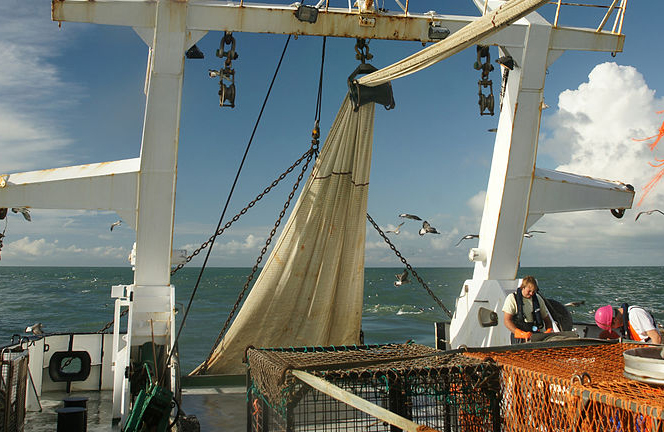
Following a long series of negotiations by European Union fisheries ministers, the council agreed today to phase out the practice of discarding unwanted fish.
The agreement signals a step towards fundamental reform of the Common Fisheries Policy and will see the cancellation of dumping otherwise edible fish.
"These were very long and hard negotiations" said European Commissioner for Maritime Affairs and Fisheries, Maria Damanaki.
"The Council took a decisive stance for a real discard ban, with a clear and binding timetable and covering all species. The Commission proposal was more ambitious. We look forward to starting trilogues and the Commission stands ready to fully play its role in that context, to achieve the most ambitious outcome."
"The future fund, the European Maritime and Fisheries Fund (EMFF) shall be there to help the industry to adapt and implement the change".
The European Parliament may still refuse to accept the proposed changes that included some exemptions agreed by the ministers.
"This is a historic moment in reforming the broken Common Fisheries Policy" said the UK fisheries minister Richard Benyon who played a role in brokering the agreement that was eventually reached following a day and night of lengthy negotiations.
"The scandal of discards has gone on for too long and I'm delighted that the UK has taken such a central role in securing this agreement."
"I am disappointed that some of the measures required to put this ban into place are no longer as ambitious as I had hoped but it’s a price I am willing to accept if it means we can get the other details right."
The decision will allow the Irish Presidency, on behalf of the Council, to engage directly with the European Parliament and Commission with a view to reaching political agreement on the reformed fisheries policy.
Minister Coveney said "I have been a strong advocate for the elimination of the wasteful practice of discards over many years, to my mind todays decision by the Council of Ministers is a historic milestone in European Fisheries Policy."
Benyon said: "The final package will still need to be agreed with the EU Parliament but the result we have achieved today is another step in the right direction and will prove to be good for both fishermen and the marine environment."
The discard ban regulation would oblige fishing vessels to land all caught fish in order to halt dumping.
Overfishing is widely seen as the worst failure of the current CFP, dating from 2002. The new one is to take effect in 2014.
European Commission figures suggest that 80% of Mediterranean stocks and 47% of Atlantic ones are overfished. The reform voted in plenary sets out clear and strong measures to tackle this problem.
"We have shown today that the European Parliament is anything but toothless. We have used our power as a co-legislator, for the first time in fisheries policy, to put a stop to overfishing. Fish stocks should recover by 2020, enabling us to take 15 million tonnes more fish, and create 37,000 new jobs", said fisheries reform rapporteur Ulrike Rodust (S&D, DE). Her report was adopted by 502 votes to 137, with 27 abstentions.
At the same time, the proposals drafted by Werner Kuhn (EPP, DE), aim to fill a gap left by the revocation of an international fisheries agreement on the Skagerrak, inter alia by harmonising EU rules with those of Norway, where a discard ban is already in place.
The UK Government faced immense pressure from other Member States who wanted to water down plans to ban discards, the Department for Environment, Food and Rural Affairs said.
The measures agreed by the fisheries ministers will assist fishermen in the transition to the new environment.
These measures provide transitional arrangements to support the change over to the new landing obligation.
They also provide flexibility in terms of maximising quota options so that fisheries will not be closed unnecessarily
The new EU fisheries fund will be available to support fishermen with the move to more selective and sustainable fishing practices.
Defra and the fishing industry are currently working on plans to ensure a smooth transition to the new Common Fisheries Policy. This involves work to improve selectivity of fishing gear, understanding more about which fish can be returned to the sea alive and ensuring that our ports can handle any extra fish that may be landed.
To enforce the discard ban, member states would be required to set up a remote electronic monitoring system to supervise fishing in the Skagerrak, which is bound by Denmark, Sweden and Norway.
For the system to work, boats over 12 metres long would have to be equipped with closed circuit TV (CCTV), GPS and transmitting equipment.
Financial aid for this should be granted from the European Maritime and Fisheries Fund, say MEPs, who also insist that the system should be automated and use image recognition software for better data protection.
